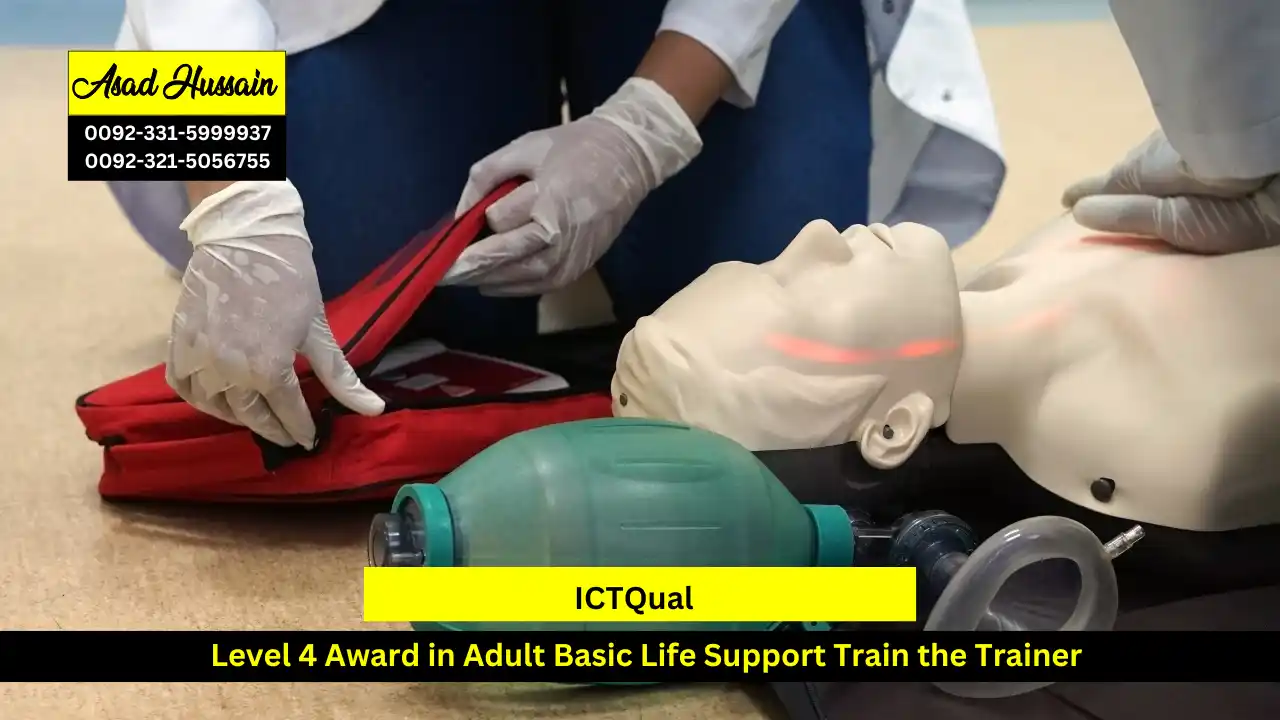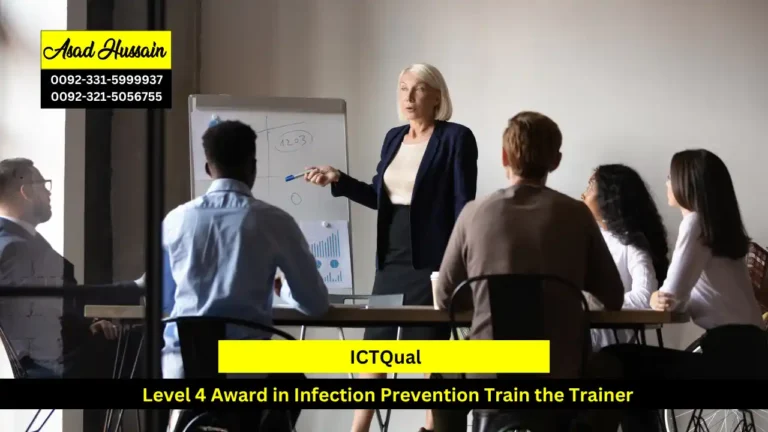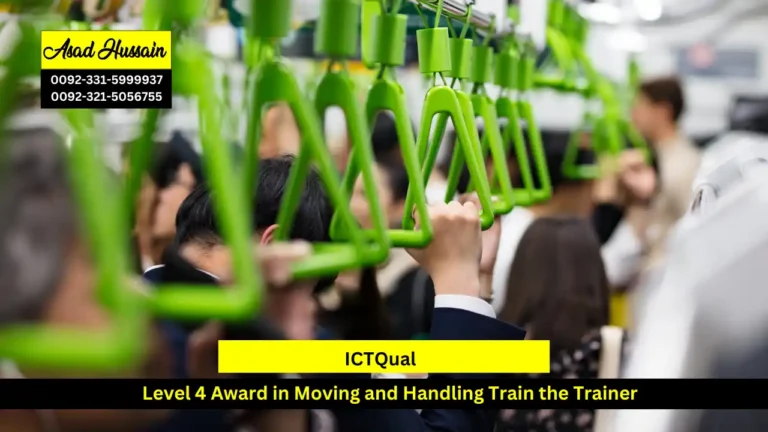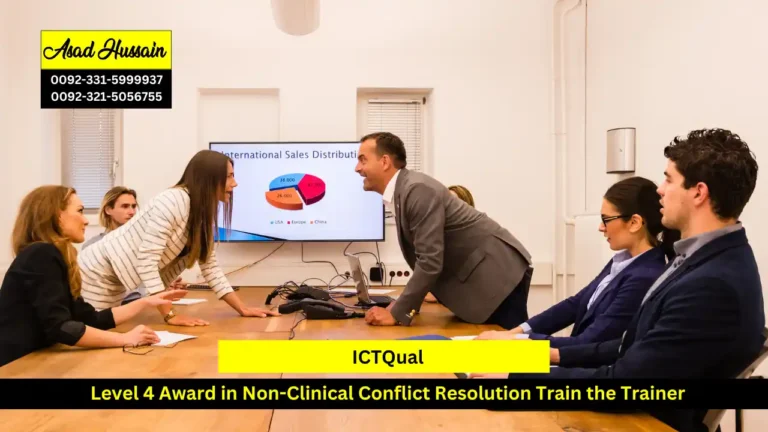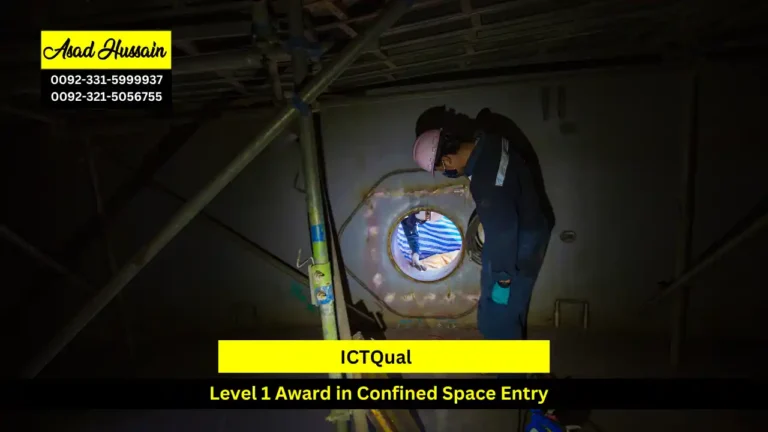In today’s world, being equipped with essential life-saving skills can make all the difference in critical situations. The ICTQual Level 4 Award in Adult Basic Life Support Train the Trainer is a comprehensive program designed to empower individuals with the knowledge and expertise to train others in basic life support techniques effectively.
Basic life support (BLS) skills are invaluable in emergencies such as cardiac arrest, choking, or other life-threatening situations. Immediate intervention can significantly improve outcomes, making trained individuals vital assets in any community or workplace. The ICTQual Level 4 Award ensures trainers are not only proficient in these techniques but also capable of imparting them with clarity and confidence.
This course is ideal for healthcare professionals, educators, safety officers, and anyone passionate about equipping others with life-saving skills. It’s especially beneficial for those seeking to expand their professional credentials or make a tangible impact in emergency preparedness within their communities.
In conclusion, the ICTQual Level 4 Award in Adult Basic Life Support Train the Trainer is not just a certification but a commitment to preparedness and empowerment. By undertaking this program, individuals not only enhance their own capabilities but also play a crucial role in building a network of competent responders ready to act swiftly in times of need.
Program Highlights
Mandatory Units
- Foundations of Adult Basic Life Support (BLS) Training
- BLS Techniques and Protocols
- Assessment and Recognition of Life-Threatening Emergencies
- Airway Management and Choking Relief
- Automated External Defibrillator (AED) Use
- Effective Teaching and Training Strategies
- Assessment and Feedback
- Training Program Development and Delivery
- Legal and Ethical Considerations
- Continuous Professional Development
- Candidates applying for this course typically need to have a minimum educational qualification equivalent to a high school diploma or its international equivalent.
- While prior experience in healthcare or emergency medical services may not always be mandatory, candidates should ideally have some background or exposure to relevant fields. Experience as a healthcare provider, paramedic, emergency medical technician (EMT), nurse, or similar role can be advantageous.
- Candidates may be required to hold a current certification in basic life support (BLS) for healthcare providers or an equivalent certification. This ensures that candidates have a foundational understanding of BLS techniques and protocols before undertaking the train-the-trainer course.
- Given the physical demands of performing BLS techniques, candidates should be in good health and physical condition. They should be capable of performing tasks such as chest compressions, rescue breathing, and operating an automated external defibrillator (AED).
- Candidates should have awareness of legal and ethical considerations relevant to providing BLS training. This includes understanding liability issues, confidentiality requirements, and adherence to professional codes of conduct.
Foundations of Adult Basic Life Support (BLS) Training
- Understand the historical development and importance of BLS.
- Describe the core principles and components of BLS.
- Identify the roles and responsibilities of a BLS trainer.
BLS Techniques and Protocols
- Demonstrate proficiency in key BLS techniques, including chest compressions and rescue breaths.
- Explain the standardized protocols for adult BLS.
- Assess the effectiveness of BLS interventions in simulated scenarios.
Assessment and Recognition of Life-Threatening Emergencies
- Recognize the signs and symptoms of life-threatening emergencies such as cardiac arrest, stroke, and severe choking.
- Conduct a primary and secondary assessment of a casualty.
- Differentiate between various emergency situations and determine the appropriate BLS response.
Airway Management and Choking Relief
- Demonstrate effective airway management techniques.
- Perform choking relief procedures for adults, including back blows and abdominal thrusts.
- Assess the effectiveness of airway management and choking relief interventions.
Automated External Defibrillator (AED) Use
- Understand the principles and importance of early defibrillation.
- Demonstrate the correct use of an AED.
- Integrate AED use with other BLS techniques during a resuscitation scenario.
Effective Teaching and Training Strategies
- Develop engaging and interactive training sessions for diverse learner groups.
- Apply adult learning principles to BLS training.
- Evaluate the effectiveness of different teaching methodologies in BLS training.
Assessment and Feedback
- Design and implement assessment tools to evaluate trainee competence in BLS.
- Provide constructive feedback to trainees to improve their skills and confidence.
- Develop strategies to assess and improve your own teaching practices.
Training Program Development and Delivery
- Develop a comprehensive BLS training program tailored to specific audiences.
- Organize and deliver effective BLS training sessions.
- Evaluate the overall success and impact of the training program.
Legal and Ethical Considerations
- Understand the legal responsibilities and liabilities of a BLS trainer.
- Discuss the ethical considerations in providing BLS training.
- Ensure compliance with relevant regulations and standards in BLS training.
Continuous Professional Development
- Identify opportunities for ongoing professional development in BLS and training.
- Develop a personal professional development plan.
- Stay updated with the latest research, guidelines, and best practices in BLS.
The ICTQual Level 4 Award in Adult Basic Life Support Train the Trainer is designed for individuals passionate about imparting life-saving skills and enhancing emergency preparedness within their communities or workplaces. This course is ideal for healthcare professionals, such as nurses, paramedics, and first responders, who seek to expand their roles as trainers. Educators, safety officers, and corporate trainers will also benefit greatly, as they often find themselves in positions to teach and guide others. Additionally, community leaders, volunteers, and anyone dedicated to public health and safety will find this certification valuable. Whether you aim to advance your professional credentials, improve workplace safety, or simply make a significant impact by empowering others with critical BLS skills, this course provides the necessary expertise and confidence to become an effective BLS instructor.

